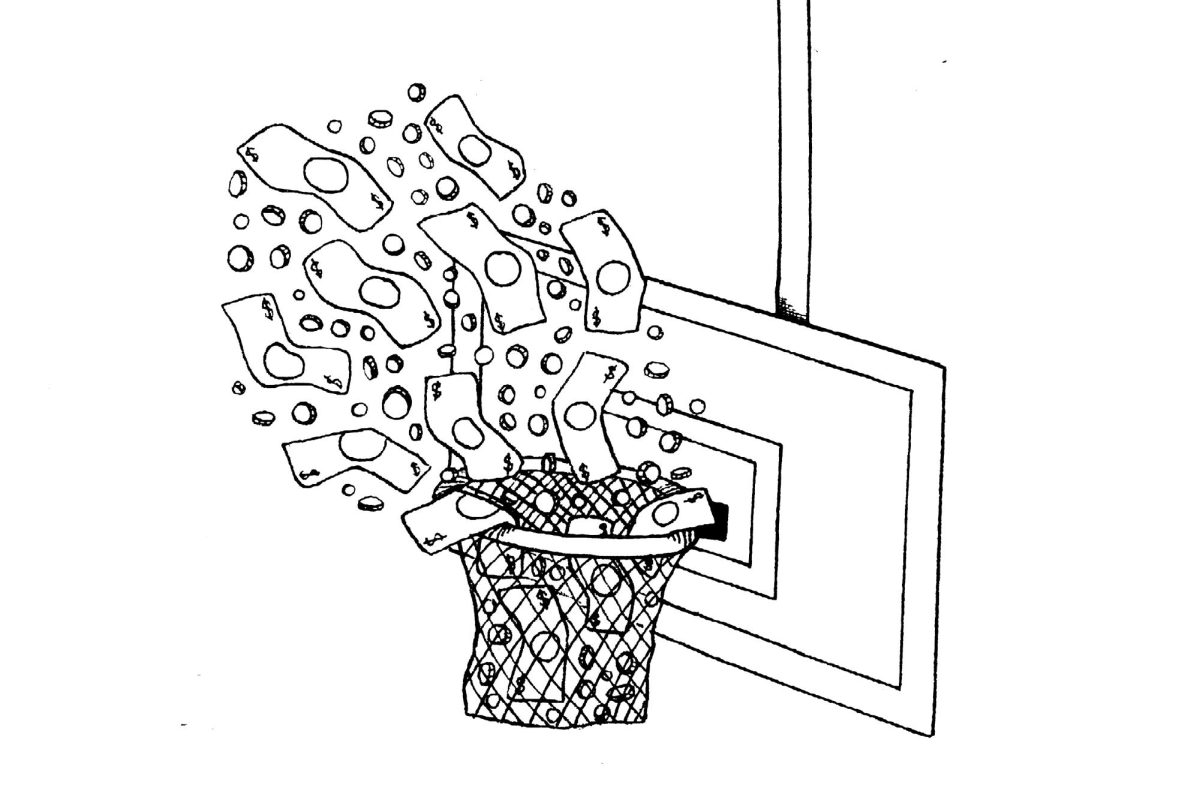Hamas’ despicable attack on Israel earlier this month has plunged GW into an abyss of fear, anger and distrust. Over the past few weeks, students have demonstrated, hosted vigils and marched on campus and throughout D.C. in response to the attack and Israel’s brutal military assault in the Gaza Strip.
Last Tuesday, demonstrators from Students for Justice in Palestine at GWU triggered an outcry when they projected messages onto Gelman Library criticizing Israel, GW and University President Ellen Granberg. A GW Police Department officer initially said the group’s projections complied with the law and GW policy, according to a representative for SJP, but later Dean of Students Colette Coleman reportedly instructed officers to take the messages down — and in the process called the University’s commitment to free speech into question.
The student organizations driving discussion on campus do not and cannot represent the views of all students. But as students voice their views and share their feelings on the devastation abroad, freedom of speech is as vital as ever. Let us reaffirm our commitment to free expression, even and especially when the speech in question is offensive.
Though First Amendment protections do not apply to the private property of universities like GW, free speech is still a core value of the University. The free speech movement of the 1960s originated on college campuses, and previous generations of GW students have spoken out against the racial segregation of University facilities and the Vietnam War.
While regulations vary by institution, American University states it “will not consider the content” of speech when enforcing its on-campus protest policies. GW ought to clarify whether and when it regulates students’ speech based on the content of what they’re saying.
Granberg denounced SJP’s projections on Gelman Library as antisemitic, and we understand the desire to bar hate speech from campus. But the spirit of the First Amendment and the principles of free expression require us to distinguish between messages that foster fear and anguish from those that present a direct, actionable threat against another person or group.
GW can either claim to uphold principles like free expression and open inquiry — principles that are the bedrock of higher education — or put its thumb on the scale of student discourse. It can’t do both. The University isn’t meant to tell students what to think: It’s meant to let them think for themselves. So, while GW has the right to determine when, where and how students can speak on campus, officials should refrain from condemning or endorsing particular messages.
For better or for worse, SJP’s vitriolic messages should be protected, even when they open “deep and painful wounds” on campus, as Granberg wrote. And for students who interpreted messages like “Glory to our martyrs” and “Free Palestine from the river to the sea” as threats to their own safety and the security of Israel, those wounds can run deep.
Jewish and Israeli members of GW’s community have a right to feel hurt by and afraid of these messages, and there is nothing objectionable with official statements that acknowledge conflicts and students’ complicated feelings about them. But when the University endorses or condemns a particular group of students’ expression, it oversteps its bounds and jeopardizes free speech on campus. To quote a previous editorial board, officials should “demonstrate a degree of empathy with students,” but they “don’t need to join a picket line.”
Students are looking to the University to take action — and many are demanding officials side with them. But while GW can help set guidelines for on-campus speech and express sympathy, officials are not charged with protecting students from ideas and viewpoints that they may find unwelcome, objectionable or even highly offensive.
Granted, free speech shouldn’t mean freedom from consequences and responsibility. But expelling and disciplining students in SJP — as some members of Congress have called for — won’t ensure the safety of Jewish and Israeli students on campus. Neither will doxxing the demonstrators. These actions do, however, make it dangerous for all Palestinian students to speak up, regardless of how they feel about the conflict.
Members of SJP have interpreted Granberg’s statements as an attack on their safety and community, pointing out that Granberg has not addressed the ongoing suffering of Palestinians living in Gaza. Regardless of their background and how closely they’re tied to this conflict, students need room to process their emotions surrounding this tragic conflict.
GW must not surrender its principles of free speech. So long as rhetoric never crosses the line into actual violence, we must remain steadfast in our commitment to the open exchange of ideas.
The editorial board consists of Hatchet staff members and operates separately from the newsroom. This week’s staff editorial was written by Editorials Assistant Paige Baratta based on discussions with Contributing Culture Editor Jenna Baer, Opinions Editor Ethan Benn, Contributing Social Media Director Anaya Bhatt, Contributing Opinions Editor Riley Goodfellow and Social Media Director Ethan Valliath.





